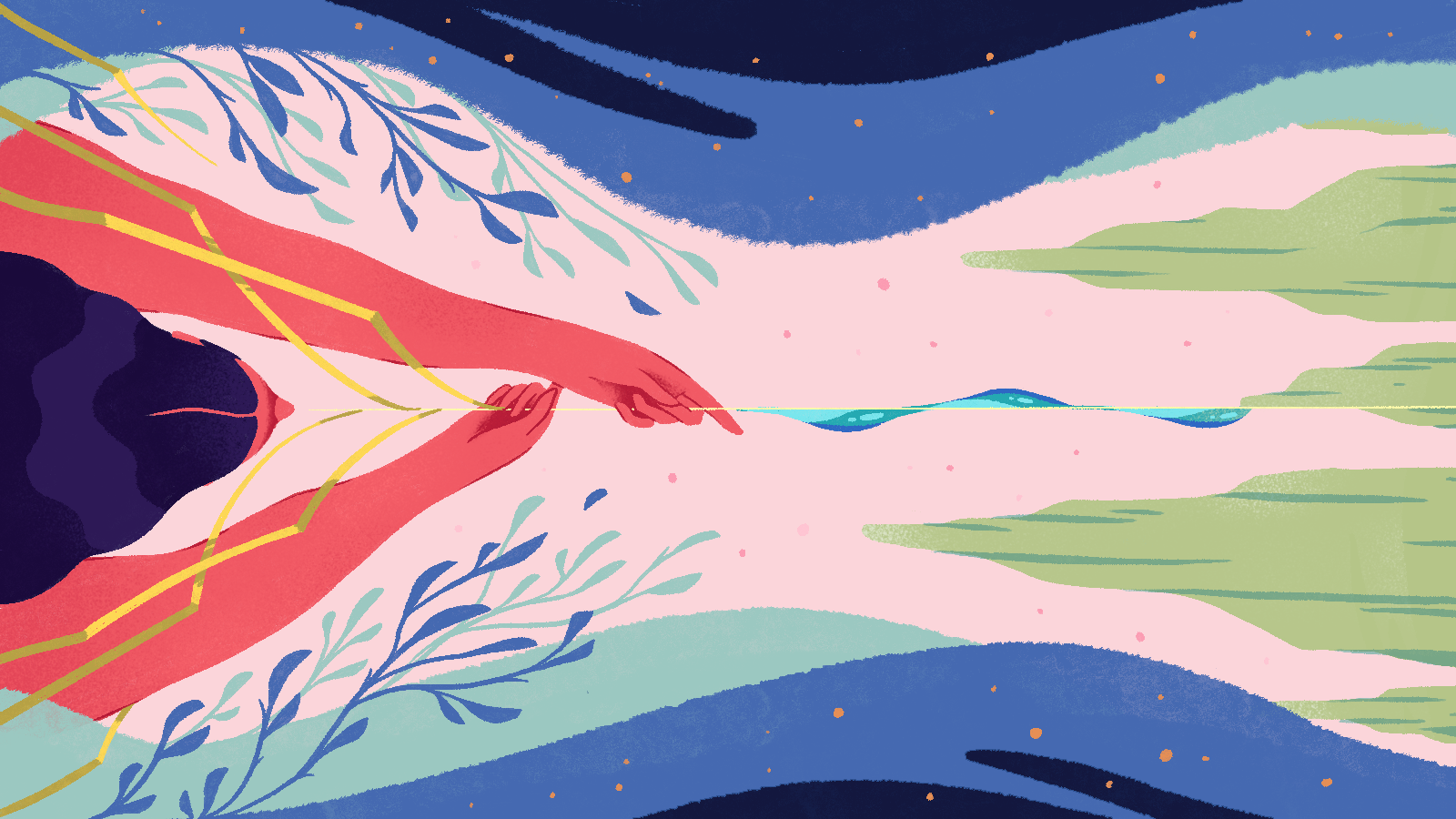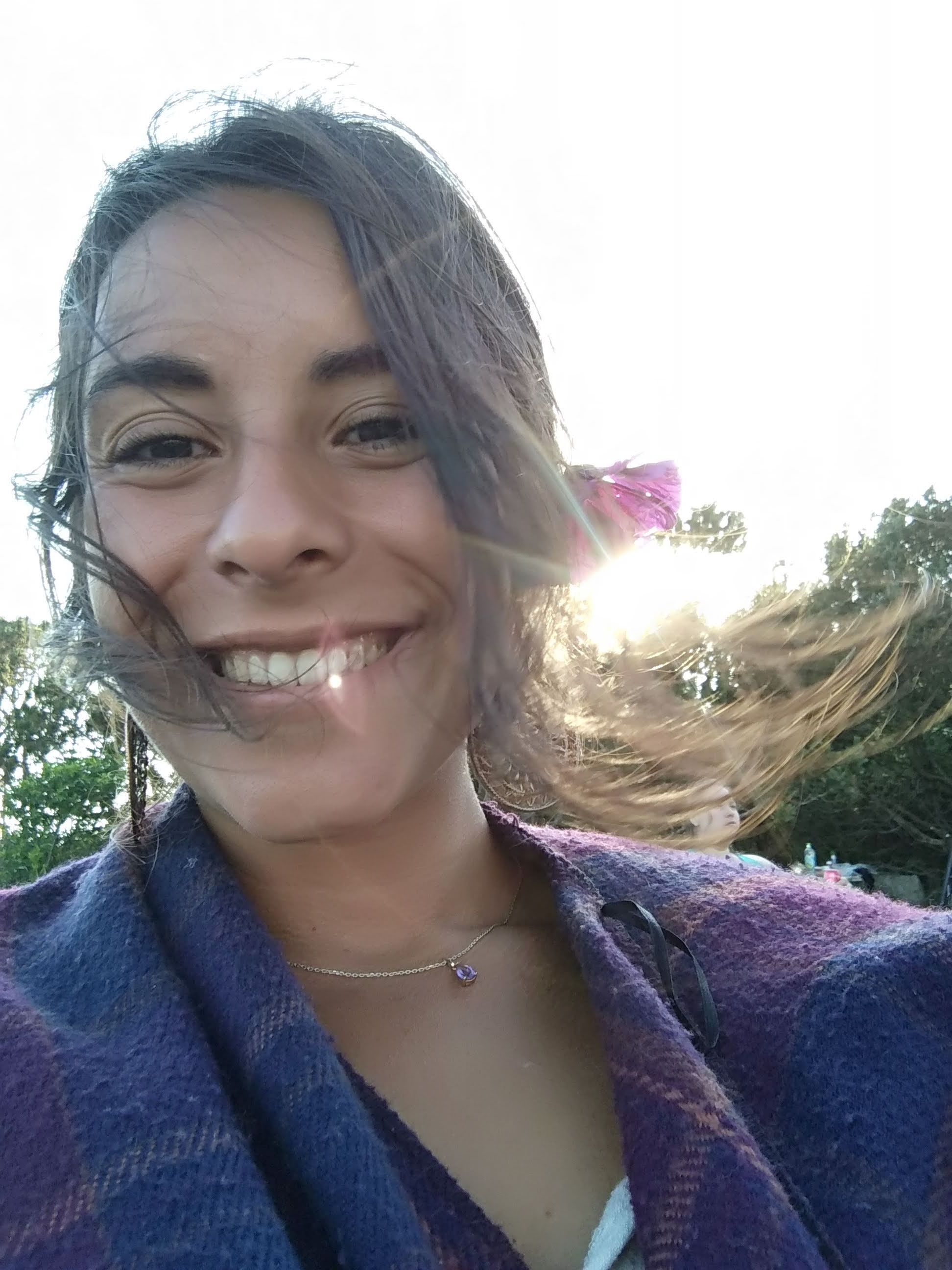Rewriting the future: finding hope in climate stories

Writing positive climate fiction goes beyond the individual; it is a political act, anti-capitalistic by nature, as it aims to create a fair, equal society for all.
I am sure you are familiar with the notion that our planet is in trouble. Devastating news reaches us every day. For many of us, climate change becomes a constant worry.
At the start of my master’s studies, in 2021, I found it increasingly painful to check the news, know what to consume, and go back to my hometown, where the lush trees of my childhood slowly die from the effects of increasing temperatures. I found myself obsessing over the latest data, numbers and deadlines, my mind overpowered by narratives of loss and doom, regularly arguing with family and friends over the best course of action, standing in the aisle of a shop uncertain of what to buy, and lying awake at night with a tight feeling in my chest.
I wanted to explore
Unsurprisingly, it had become harder and harder to imagine a peaceful, bright future. At the same time, a small voice inside me screamed, this is not who you are. I am hopeful, bubbly, I always try and see the good in people and situations. I want to be part of the solution, which is why I decided to study sustainability in the first place. Yes, the situation might be dreadful and scary, but I was sure there was more to it than that.
So this year I decided to take a leap of faith. I wanted to explore: What happens when I decide to focus on the good? What happens when, instead of coming up against words of despair, I get to fall asleep to stories of hope?
This question prompted my research journey. I knew there was such a thing as a climate fiction movement, and I wanted to learn more. My curiosity was both personal and academic. I believed in the power of words, and I decided to research narratives of hope, wondering whether (positive) stories can help people deal with their climate anxiety and whether it affects their perception of the future.
Read Melissa’s thesis: “Rewriting the future: How are individual and collective processes of agency and resistance negotiated through writing climate fiction?"
I plunged into the world of hopeful climate writing

This was it. I armed myself with questions, a recording app, and a small red notebook. On a cold evening in January 2022, I sat in my room in the Netherlands, turned on my laptop and joined the first of many workshops. As an anthropologist, the objective of field research is to become a “participant observer”, fully immersed in the research topic. I plunged into the world of hopeful climate writing, participating in as many activities as I could while leading interviews on the side.
For three months I joined countless zoom calls, attending more than 50 online events related to hopeful stories for the future – improvisation theatre, writing groups, panels and workshops, interviews, discussions and reading sessions. I followed classes of climate fiction, where I wrote stories, read them aloud and received feedback, my heart racing all the while. I watched visual interpretations of short stories, listened to academic panels, and played a climate fiction game. I fell asleep to hopeful storytelling nights, accents and noises making the stories feel alive and soothing. I joined a story visualisation event, closing my eyes as I was prompted to do so, imagining myself in a future forest. I browsed through my research participants’ blog posts, and I read every story that was sent or recommended to me.
Hope became my new guideline, the thing I actively looked for in stories and conversations. It was all around me. And how, you may wonder, did it affect me?
I realised that these people were activists
Well, I still worried. Talking about climate change daily can easily have that effect on you – it is difficult to accept the enormity of the task at hand. But slowly, something changed in me. I met people of all ages, countries, and genders. I listened to what they said, and I could not take notes quickly enough. In my small red log, a pattern appeared. Some words, written in capital letters and circled with bright colours, kept coming back. Can you guess which ones? I’ll give you some: HOPEFUL, INSPIRED, HAPPY, RELAXED, LUCKY, COMMUNITY, LOVED.
I felt inspired. After seeing familiar faces popping up in tiny squares on my screen again and again, I realised that these people were activists. Many of my research participants (kindly) rejected the term when I inserted it in our conversations. “This is easy activism”, they said, “it’s not like I take it to the streets.” I disrespectfully disagree.
They must resist the tragic narrative of despair
The processes of writing hopeful climate fiction engages you in several acts of resistance. Hopeful writers wake up in the morning and make the conscious decision to resist. Firstly, they must face their own feelings of eco-anxiety, and embrace feelings of grief and guilt in order to act. They must resist the tragic narrative of despair presented by the news in order to create another kind of narrative. Engaging in a process of resisting dystopia, individuals focus on what is good around them and include these positive notes in their stories. They engage in a process of scientific research, sharing practical solutions in their writings.
Writing fiction goes beyond the individual; hopeful climate stories act as a place for readers’ imagination to take roots. Positive storytelling aims to affect decision making in the present, to show that different sets of individual and collective decisions can have an impact. As such, writers of hopeful stories are environmental activists, calling for systems change. Writing hopeful stories for the future is a political act, anti-capitalistic by nature, as it aims to create a fair, equal society for all.
I listened and learned that hope has contagious qualities
There are many ways we can be activists. I started to talk to people in my life – sharing short stories with loved ones and discussing positive bits of news. I asked people around me how they imagined their future, and I did not argue. I listened and learned that hope has contagious qualities.
Change can take its foundation on hope. And if we wish to achieve a better kind of future, perhaps we need to start focusing more on the good, on what we actually want to become, rather than just what we want to avoid.
We all have the power to reimagine and reclaim our future. As the saying goes: if you can imagine it, then you can create it.
What future do you want to create? Hopeful climate stories can be a starting point to visualise it, and to take action.
What better seed is there than hope in the planting of our future stories?
Article by Melissa (Lili) Aïnseba Lili is trained as a cultural anthropologist with a focus on sustainability. She am always looking for new stories - in books, in people, and in places. Her favourite things in the world include laying on the grass in late autumn, warm porridge with cinnamon, and long train rides to unknown places.
Lili interviewd Climate Creativity’s co-founder for her thesis, and we were so happy to contribute to her reserach, and so glad she wanted to write this article for us sharing what she learned on this academic and personal journey. Thank you!
Art work by Grace Abe for Fix’s contest, Imagine 2200.